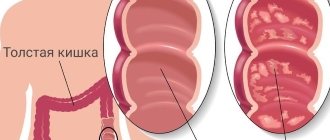Sour vomit
Acid vomiting occurs for a variety of reasons. Popular ones include: infections, gastritis, gastric and duodenal ulcers, narrowing of the pyloric lumen and Zollinger-Ellison syndrome (pancreatic tumor). These diseases are accompanied by a strong secretion of gastric juice, which causes the urge to vomit, which comes out along with the vomit. Experts identify causes that are not related to the development of gastrointestinal pathologies.
The main diseases that provoke its appearance are:
- Peptic ulcer of the stomach and duodenum.
- Zollinger-Ellison syndrome.
- Chronic gastritis.
- Pyloric stenosis in the stage of decompensation.
- Bacterial and viral diseases.
All of these diseases, with the exception of pyloric stenosis, occur with an increase in the production of gastric juice, which leads to an increase in acidity in the lumen of the stomach. Vomiting itself is a complex reflex act that is controlled by the medulla oblongata. Typically, vomiting refers to the eruption of gastric contents into the oral or nasal cavity. It should not be confused with nausea, since nausea is a prerequisite for the gag reflex and is usually regarded as a state of discomfort in the abdominal cavity.
Acid vomiting occurs for a variety of reasons. Popular ones include: infections, gastritis, gastric and duodenal ulcers, narrowing of the pyloric lumen and Zollinger-Ellison syndrome (pancreatic tumor)
Consequences and prevention
In the process of regular vomiting, there is a loss of moisture in the body, with which useful substances are released, which leads to an imbalance in vitamin balance. The inability to eat food leads to exhaustion of the body.
Negative consequences include an increased risk of damage to the walls of the digestive system. The described reactions of the body can lead to death or impaired functioning of internal organs.
In order to prevent the occurrence of consequences, it is recommended to promptly consult doctors for help, as well as organize proper nutrition. Be sure to follow the rules of personal hygiene and carefully process vegetables and fruits before consumption. Pay attention to the appearance, taste, smell and expiration date of products.
Sour vomiting causes
An ulcer can develop in any part of the organ. Its development is associated with several mechanisms. The first is protective, which arises due to the impact of negative factors on the organ: hot food, large undigested pieces of food, the presence of Helicobacter bacteria. They lead to a reduction in the protective layer that envelops the inner surface of the stomach. Another mechanism is an increase in acidity, which occurs for similar reasons due to increased production of hydrochloric acid.
Irritable stomach syndrome is observed, which provokes an impact on the nerve fibers and leads to an eruption. Vomiting with an ulcer does not require relief, appears after eating and contains acid. There is a narrowing of the outlet leading from the stomach to the duodenum. Because of this, a mechanical barrier appears to the passage of stomach contents through the gastrointestinal tract. Then the digested food mixed with gastric juice moves in the opposite direction, which leads to vomiting. They often have a liquid consistency.
The disease poses a threat to the patient's life and requires urgent treatment. Chronic gastritis, accompanied by hypersecretion, is an inflammation of the gastric mucosa when excessive acid formation occurs in the parietal cells. The disease is manifested by vomiting with acid and prolonged pain. Appears at night, when there is no food in the stomach to digest. After the eruption, short-term relief occurs, and symptoms return.
The appearance of a food toxic infection is the most common factor in acid vomiting, which develops due to the entry of pathogenic microorganisms into the gastrointestinal tract. Most food infections are characterized by the rapid onset of symptoms, after just a few hours, and rapid development: nausea, profuse vomiting with liquid, and then acid.
This is due to the secretion of mucus to eliminate microorganisms that disrupt the stable functions of the organ. They lead to increased secretion of gastric juice and increase acidity.
Zollinger-Ellison syndrome
With this disease, a tumor develops in the pancreas, which produces large amounts of gastrin, a natural stimulator of gastric secretion. With its increased amount, the content of hydrochloric acid also increases. The mechanism of vomiting is the same as during the development of gastric ulcer. Vomiting cannot be controlled with antiemetic drugs and requires surgical intervention.
In addition to diseases of the digestive tract, vomiting can also occur with diseases of other organs. Most often it occurs with traumatic brain injuries (repeated several times and does not bring visible relief), severe cerebral strokes. Sour vomiting may indicate a decrease in stomach tone and excessive overeating (such vomiting is considered physiological and does not require the intervention of qualified specialists).
Nausea and vomiting sour mechanism
Excessive consumption of alcoholic beverages and overeating leads to vomiting, which does not require special treatment. In case of brain diseases, the patient must be urgently hospitalized. An ulcer appears on the walls of the stomach or in the duodenum. Under normal conditions, the human stomach is protected by a mucous substance that coats the walls of the organ and prevents close contact with the organ's secretions.
With improper nutrition, the mucous membrane of the organ is destroyed. The walls become vulnerable to the acid produced. In places where the mucous layer is smaller, an ulcer appears, causing vomiting of hydrochloric acid along with the remains of undigested food. This happens after a meal. The painful sensation lasts for a long time. High acidity of the stomach can provoke pathology.
- The presence of bile in the vomit indicates improper functioning of the pylorus and bile entering the stomach. Due to the spasm, an obstruction appears that prevents food from passing normally through the gastrointestinal tract. Consequently, food mixed with gastric juice and bile comes out, leading to bitter vomiting. Pathology appears due to the presence of diseases of the gastrointestinal tract, poisoning or infections.
- With chronic gastritis with increased secretion of gastric juice, severe heartburn, vomiting, and severe pain appear. The disease manifests itself at night when there is no food in the digestive organs. After the vomit is released, the patient experiences slight relief, but the symptoms reappear.
- A common cause of sour vomiting is the formation of a food infection that develops due to the penetration of pathogenic microorganisms . Symptoms of caused intoxication appear rapidly: attacks of nausea, vomiting with sour contents, chills, fever, diarrhea.
Appears due to the release of excessive amounts of mucus to eliminate pathogenic microflora, which disrupts the stable functioning of the organ. This leads to excessive secretion of gastric secretions, increasing the acidity of the organ.
What to eat and what to exclude
In addition to treatment, doctors prescribe therapeutic (dietary) nutrition. Be sure to remove spicy, salty, sour, pickled and sweet foods from your usual diet. Fried foods, smoked foods and fatty foods are also prohibited.
We recommend: Is it possible for children and adults to be poisoned by honey - symptoms
Principles of dietary nutrition:
- heat treatment of food - steam, cooking, stewing (without oil);
- Allowed vegetables are potatoes, cucumbers, cabbage. Legumes are prohibited;
- Among the dishes you can eat liquid porridges, soups, chicken, omelettes, casseroles;
- what is allowed to drink: freshly squeezed juice from sweet fruits, herbal teas, casseroles and homemade yogurt;
- You should not eat fresh bread. Dried or stale is allowed.
Food should be warm. Portions of 200 grams, but every three hours. Coffee and alcoholic beverages are also prohibited from being included in the diet. Sometimes after drinking alcohol a person experiences an attack and a deterioration in his general condition.
Sour vomiting with pyloric stenosis
Pyloric stenosis is characterized by a narrowing of the outlet leading from the stomach to the duodenum.
Pyloric stenosis is characterized by a narrowing of the outlet leading from the stomach to the duodenum. Because of this, a mechanical barrier arises during the evacuation of gastric contents from its cavity. Waves of reverse peristalsis begin to form, which promotes the flow of digested food and gastric juice in the opposite direction. Vomit may contain undigested food components, but most often they are of a liquid consistency. If this symptom appears, consultation with a surgeon is necessary, since the condition is somewhat life-threatening.
Stenosis of the pylorus of the stomach is a complication of peptic ulcer of the digestive organ. In the presence of pathology, a narrowing of the lumen occurs. The passage of food through the gastrointestinal tract becomes significantly more difficult. The disorder can only be acquired and occurs mainly in adulthood. With stenosis, food is not able to enter the intestinal tract in full. If treatment is not started in a timely manner, malignant cells may form.
Vomiting sour in chronic gastritis
Chronic gastritis with hypersecretion is a chronic inflammation of the cells of the gastric mucosa, accompanied by increased acid production by parietal cells (in medicine it is more often known as chronic gastritis type B or gastritis associated with Helicobacter pylori).
This disease is accompanied by prolonged hunger pain. Vomiting with acid develops. Most often it manifests itself at night and usually brings some relief after removing the contents of the stomach. It worries patients for a long time and requires long-term observation and competent therapy.
Nausea vomiting sour what to do
All of the above diseases require thorough instrumental and laboratory examination. It is necessary to determine the cause of vomiting and eliminate it. Most often, a cure can be achieved with the help of competent correction of the diet and the preparation of a proper diet.
Patients with peptic ulcer disease are strictly prohibited from eating spicy, salty, or smoked foods, since these foods not only provoke vomiting, but also contribute to the progression of the spread of the ulcer and its perforation or malignancy. Such patients are monitored by gastroenterologists, and if symptoms of perforation of the ulcer or bleeding from it appear, they are transferred to surgical departments or intensive care units for qualified treatment and restoration of body functions.
Zollinger-Ellison syndrome and pyloric stenosis must be treated only in specialized surgical and oncology departments, since the only way to eliminate the cause of vomiting is surgery (tumor removal for pancreatic adenoma and reconstructive surgery for stenosis).
Food toxic infections are treated in the departments of infectious diseases hospitals and in most cases do not require specialized drug treatment. All measures come down to gastric lavage, the use of adsorbents (activated carbon) and the administration of enemas. Usually these measures are enough for a complete cure.
Chronic gastritis is treated conservatively, and drug therapy is reduced to the use of antibiotics, to which the Helicobacter bacterium is sensitive; gastroprotectors to protect the mucous membrane from the effects of aggressive factors of gastric juice, as well as antacids - medications that help neutralize excessive amounts of hydrochloric acid. It is important to remember that with the appearance of vomiting that has a sour taste, you must immediately consult a doctor to establish an accurate diagnosis and prescribe appropriate treatment.
Diagnostics
Before prescribing drug therapy, the doctor must identify the cause of vomiting. The gastrointestinal system is diagnosed first.
Examination methods:
- ultrasound examination of the digestive organs;
- X-ray of the stomach;
- gastroscopy;
- blood and urine tests;
- magnetic resonance and computed tomography in special cases.
After diagnosis, treatment is prescribed. To improve the condition, sometimes it is enough to follow the correct regimen and therapeutic nutrition.
Vomiting sour food
Nausea and sour taste can be a consequence of overeating.
This symptom is also characteristic of eating dry food. Nausea and a sour taste can be a consequence of overeating. The symptom is also characteristic of eating dry food. Food stagnates in the stomach, causing nausea and a sour taste. After this, there may be processes of rotting and fermentation in the stomach, which will cause rotten belching, diarrhea or constipation and vomiting or a feeling of nausea. But most often, the combination of symptoms under consideration indicates damage to the pancreas, therefore, for diagnosis in order to make a final diagnosis, a special examination of the entire digestive system is necessary.
The combination of these symptoms indicates that there are certain pathologies of the gastrointestinal tract. In the future, a feeling of heaviness in the epigastric region, pain in the upper abdomen, belching and other manifestations may appear. Among the causes are gastritis with high acidity, duodenal or stomach ulcer, gastroduodenitis.
Vomiting acidic water
A sour taste in the mouth in the morning may indicate that you have gastritis, gastroduodenitis or gastroesophageal reflux. If the taste of sour milk appears in your mouth if you have not consumed dairy, this should alert you. The symptom may be a consequence of stress, or may be caused by helminthic infestation, intestinal spasm, or disruptions in the gastrointestinal tract.
Disorders of the stomach and pancreas sometimes provoke a feeling of the taste of sour milk in the mouth. But other manifestations may also develop in parallel: belching, nausea, abdominal pain. Attacks of vomiting and loose stools are rare, but they indicate weakness, general weakness, and the person becomes sleepy. In most cases, such signs indicate a diagnosis of gastritis or pancreatitis, so you should definitely contact a gastroenterologist.
A constant sour taste in the mouth indicates illness in 99.9% of cases. You may have hyperacid gastritis. This is a disease that is characterized by inflammation of the walls of the stomach and increased acidity of gastric juice. The disease is also manifested by abdominal pain, heartburn, periodic nausea, sour belching, etc.
Gastroesophageal reflux can also cause a persistent sour feeling in the mouth. The disease means a partial return of gastric juice into the lumen of the esophagus, which over time causes irritation of the mucous membrane of the esophageal tube and the development of an inflammatory process. Among the causes are gastric and duodenal ulcers; with exacerbation of diseases, the symptom in question appears.











